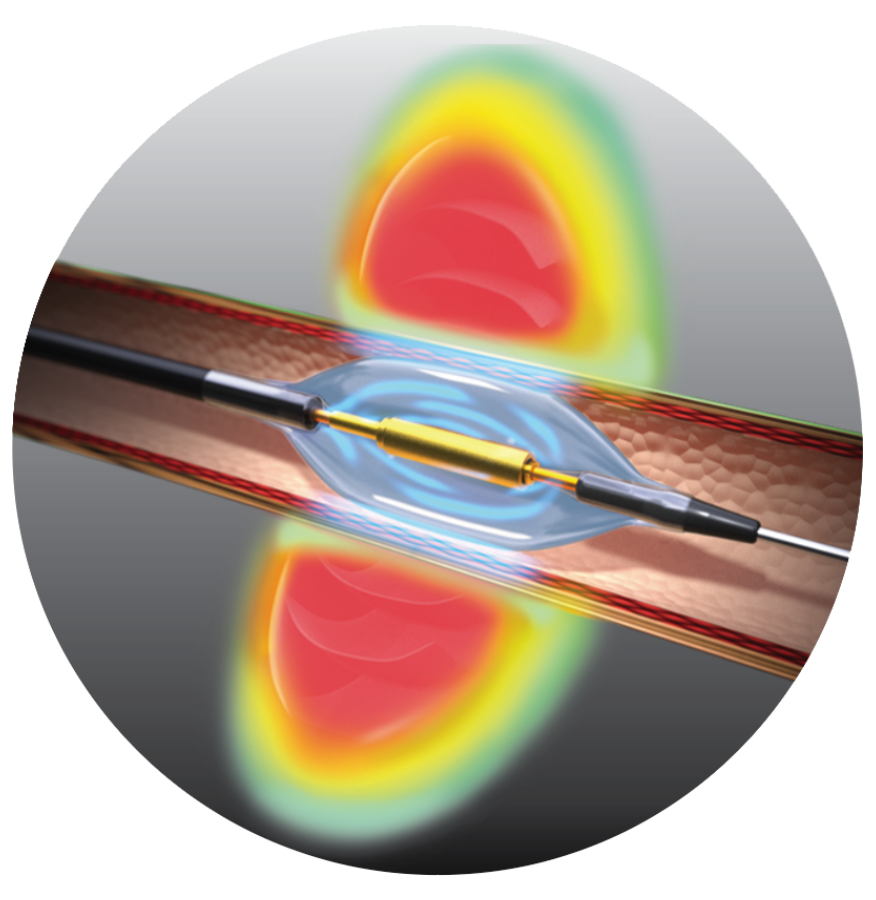Ultrasound Renal Denervation System to Treat Hypertension Gets FDA Clearance
Images

Recor Medical, Inc. and its parent company, Otsuka Medical Devices Co., Ltd. announced the US FDA has approved Recor’s Paradise Ultrasound Renal Denervation (RDN) system for the treatment of hypertension.
The Paradise system is intended as an adjunctive treatment option when lifestyle changes and medications have not adequately controlled a patient’s blood pressure. It is an ultrasound-based RDN technology designed to lower blood pressure by denervating the sympathetic nerves surrounding the renal arteries, reducing the overactivity that can lead to hypertension. The Paradise system delivers two to three doses of 360-degree ultrasound energy — lasting seven seconds each — through each of the main renal arteries to the surrounding nerves. The Paradise catheter features the exclusive HydroCooling system, which circulates sterile water through the balloon catheter during the procedure to help protect the renal artery wall.
Approval of the Paradise system follows Recor’s positive FDA Advisory Committee Panel in August 2023. Earlier this year, results from Recor’s US pivotal study, the RADIANCE II Randomized Clinical Trial, were published in the Journal of the American Medical Association (JAMA). In the study, the Paradise Ultrasound RDN system met both the primary safety and effectiveness endpoints without any major adverse events.
“Recor is leading the way in bringing an innovative solution to clinicians and their patients struggling to control blood pressure. This FDA approval is the culmination of years of technical research and rigorous clinical studies,” said Lara Barghout, President and CEO of Recor Medical. “We are grateful to the patients who participated in the studies and to the clinical trial investigator teams whose diligence and dedication made FDA approval possible. We look forward to making this technology available to physicians and their patients nationwide.”
Recor has been focused on developing and testing the Paradise Ultrasound RDN system for the treatment of hypertension since 2009. The RADIANCE global program studied the Paradise system in three independently powered, sham-controlled, randomized clinical trials in over 500 patients with uncontrolled hypertension: RADIANCE II and RADIANCE- HTN SOLO, which studied patients with mild-moderate hypertension in an “off-meds” setting, and RADIANCE-HTN TRIO, which studied patients with resistant hypertension on standardized triple antihypertensive therapy. Each trial met its prescribed primary efficacy endpoint with a favorable safety profile consistently observed following ultrasound RDN treatment.
“Despite the longstanding availability of dozens of affordable anti-hypertensive medications, blood pressure control rates in the United States are alarmingly low and falling. Given the significant blood pressure reductions seen in the ultrasound renal denervation trials, the Paradise Ultrasound Renal Denervation system offers a much-needed advancement in our currently available options to control hypertension,” said site principal investigator Naomi Fisher, MD, Associate Professor of Medicine, Harvard Medical School, and Director of Hypertension Service and Hypertension Innovation, Division of Endocrinology, Diabetes and Hypertension at Brigham and Women’s Hospital. “uRDN has proven efficacy in patients with truly resistant hypertension, a population for whom medication therapy often fails. It is also effective in patients with mild to moderate hypertension who cannot tolerate enough medication to control their blood pressure.”
“Approval of the Paradise Ultrasound RDN system marks an important milestone for the company and provides a new adjunctive treatment option for hypertension which remains inadequately controlled despite conventional therapies,” said Noriko Tojo, President and Representative Director of Otsuka Medical Devices and Executive Director of Otsuka Holdings Co., Ltd. “We are excited for patients and their healthcare professionals to have access to this technology to assist in managing hypertension and improving outcomes.”
Related Articles
Citation
. Ultrasound Renal Denervation System to Treat Hypertension Gets FDA Clearance. Appl Radiol.
November 13, 2023